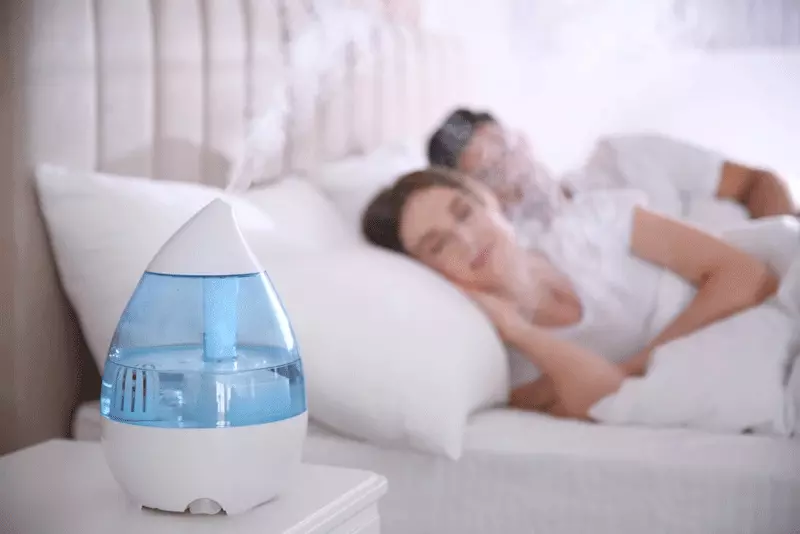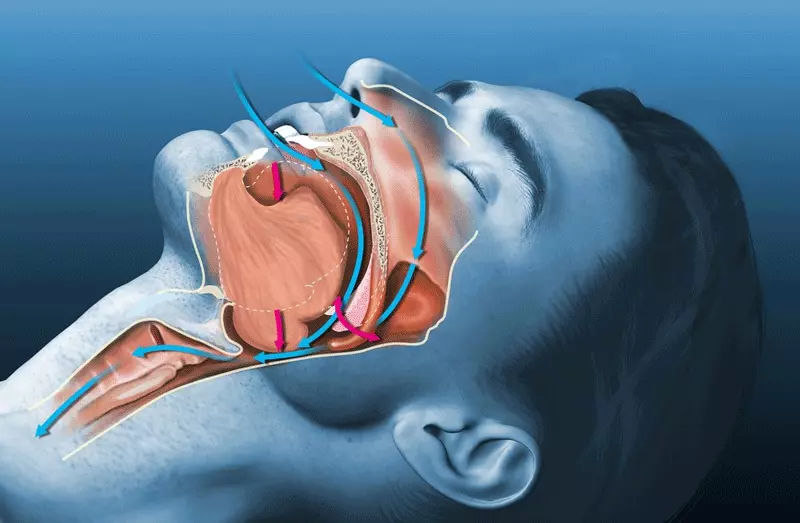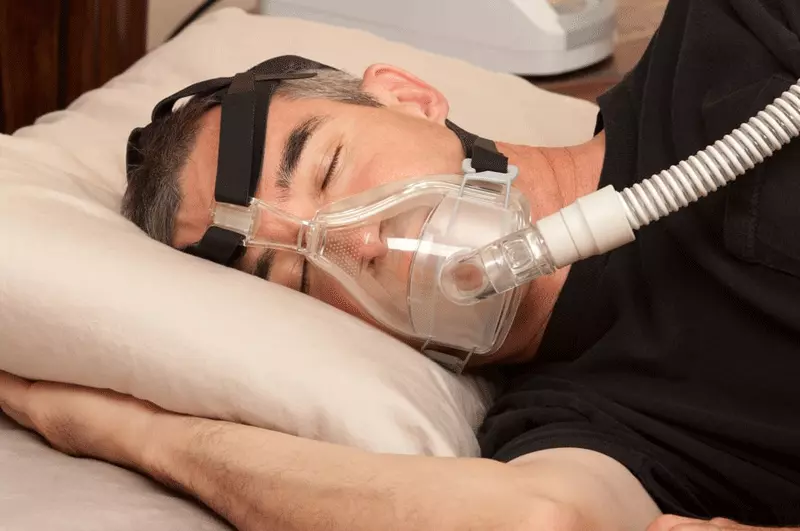Does a Humidifier Help with Snoring? Here's What You Need to Know
Jul 26th 2023

Ever found yourself battling the ear-splitting sound of snoring, either your own or a loved one's? With sleep deprivation linked to serious health issues, it is not something you should ignore. One commonly prescribed remedy is adding a humidifier to your sleep environment. But does a humidifier truly help with snoring? Dive in as we demystify this topic, exploring scientific research and expert opinions on whether a simple addition of atmospheric moisture can offer you the peaceful night’s sleep you've been dreaming about.
Humidifiers can be effective in combating snoring caused by dry air, allergies, and nasal congestion. By adding moisture to the air, a humidifier can alleviate throat irritations and nasal congestion that contribute to snoring. It is recommended to keep the humidifier running throughout the night for optimal results. It's important to note that underlying health issues should be addressed separately, and it's always best to consult with a doctor if snoring persists or there are other health concerns.
Understanding Snoring and Its Causes

Snoring is a common nocturnal annoyance that affects individuals of all ages. It occurs when the flow of air through the mouth and nose is partially obstructed during sleep, resulting in loud, vibrating sounds. But what causes snoring? Understanding the underlying factors can help shed light on how a humidifier can potentially alleviate this issue.
A primary cause of snoring is the relaxation of muscles in the mouth and throat, which partially obstruct the air passages, leading to vibrations when air passes through. This relaxation can occur due to various factors such as obesity, age, alcohol consumption, nasal congestion, or even anatomical abnormalities like enlarged tonsils. Additionally, allergies, colds, and sinus infections may exacerbate snoring symptoms by further congesting the nasal passages.
It's important to note that snoring may not be merely an inconvenience; it can also indicate more serious health conditions such as sleep apnea. Sleep apnea is a sleep disorder characterized by pauses in breathing or shallow breaths during sleep. If you or your partner experience excessively loud snoring combined with daytime fatigue or other potential symptoms of sleep apnea, consulting a medical professional for a proper diagnosis is recommended.
Now that we have a better understanding of snoring and its various causes, let's explore the role of dry air in contributing to this nighttime disturbance.
Role of Dry Air in Snoring

Dry air within our living spaces can worsen existing snoring issues or even contribute to its onset. When the air lacks sufficient moisture, it can cause irritation and inflammation in the nasal passages and throat. This leads to increased congestion and swelling of the tissues, thereby narrowing the airways and making it more difficult for air to flow freely during breathing.
Nasal congestion plays a significant role in snoring since it forces individuals to breathe through their mouths instead of their noses. Breathing through the mouth increases the chances of the soft tissues in the throat vibrating, resulting in snoring sounds. The dry air can further exacerbate nasal congestion and throat irritations, making snoring more likely to occur.
Using a humidifier can help combat these issues by adding moisture to the air. By increasing humidity levels, a humidifier can soothe the airways, reduce inflammation, and potentially alleviate snoring. It's worth noting that while a humidifier can provide relief for snoring symptoms caused by dry air, it may not be effective in every case. If snoring persists or is caused by an underlying medical condition, seeking guidance from a healthcare professional is essential.
For instance, imagine you wake up every morning with a dry throat and nasal congestion, which contributes to your persistent snoring at night. Introducing a humidifier into your bedroom could provide much-needed moisture to the air, alleviating congestion and reducing snoring episodes.
Understanding how dry air impacts snoring and the potential benefits of using a humidifier sets the stage for exploring the central question: Does a humidifier truly help with snoring?
- A survey by the American Academy of Otolaryngology found that around 48% of American adults are habitual snorers, many have found relief using a humidifier.
- Clinical studies suggest that dry air can aggravate the tissues in the nose and throat, potentially increasing snoring symptoms. Using a humidifier to maintain indoor humidity levels between 40%-50% may relieve these symptoms.
- According to Sleep.org, approximately 30%-40% of people who use humidifiers to mitigate snoring report improvement in their sleep quality.
- Dry air can worsen or contribute to snoring by causing irritation and inflammation in the nasal passages and throat. A humidifier can potentially alleviate snoring caused by dry air by adding moisture, reducing inflammation and congestion. However, it may not be effective in every case, and seeking guidance from a healthcare professional is necessary if snoring persists or is caused by an underlying medical condition.
Does a Humidifier Help With Snoring?

If you or your partner suffer from snoring, you may have wondered if a humidifier can help alleviate this nighttime nuisance. Well, the answer is yes! A humidifier can indeed be a helpful tool in reducing or even preventing snoring. But how exactly does it work? Let's explore the underlying mechanisms and benefits of using a humidifier to combat snoring.
One of the common causes of snoring is the relaxation and narrowing of muscles in the mouth and throat. This narrowing obstructs the air passages, which leads to vibrations when air passes through, resulting in those familiar snoring sounds. Dry air can exacerbate these conditions by irritating and inflaming the nasal passages and throat, making the muscles more prone to relaxation and vibration.
By introducing moisture into the air, a humidifier helps to counteract this dryness. The increased humidity soothes the airways, reducing inflammation and congestion, which can improve nasal breathing and decrease snoring. The moistened air also hydrates the tissues in the throat, making them less likely to vibrate during sleep.
Imagine this: Sara suffers from occasional bouts of snoring due to seasonal allergies and dry winter air in her bedroom. She decides to try using a humidifier at night. As she turns it on, she notices a subtle change in the room's atmosphere as a gentle mist fills the air. Throughout the night, Sara breathes in moistened air, allowing her nasal passages and throat to stay hydrated. The next morning, she wakes up feeling refreshed with no complaints from her partner about disruptive snores.
It is important to note that while a humidifier can be effective for reducing snoring caused by dry air or seasonal factors, it may not completely eliminate snoring that stems from other underlying medical conditions such as sleep apnea or obesity. If you suspect that your snoring is associated with a more serious health issue, it is advisable to consult a healthcare professional for a comprehensive evaluation and appropriate treatment.
Now that we understand the positive effects of humidification on snoring, let's take a closer look at how this process soothes the throat and reduces snoring.
How Humidification Soothes Throat and Reduces Snoring
When the air we breathe is dry, the delicate tissues in our throat can become irritated and inflamed. This inflammation contributes to nasal congestion and obstructed airflow, leading to an increased likelihood of snoring. Humidification helps alleviate these issues by adding moisture to the air, thereby reducing swelling and irritation within the throat.
As the humidifier disperses moisture into the environment, it creates an optimal level of humidity that aids in keeping the air passages moisturized. This added moisture helps to soothe dryness, reduces congestion, and lessens nasal resistance. By promoting clear nasal breathing and minimizing obstructions, humidification plays a vital role in reducing snoring incidents during sleep.
Furthermore, the soothing properties of humidified air extend beyond just relieving throat discomfort. It can also help combat nasal allergies by moisturizing nasal membranes and trapping irritants such as dust, pet dander, and pollen in the water vapor. This results in cleaner indoor air quality, which can significantly improve overall respiratory health and reduce snoring triggers.
Take Mark as an example: He suffers from chronic allergies that often lead to nasal congestion and subsequent snoring at night. Seeking relief, he invests in a high-quality humidifier for his bedroom. Within just a few days of using the humidifier consistently, Mark notices a significant improvement in his ability to breathe through his nose while sleeping. The reduction in nasal congestion not only results in quieter nights for Mark but also provides him with better quality sleep overall.
While it's clear that humidification assists in soothing the throat and reducing snoring, it's important to select the right humidifier for your needs and ensure proper maintenance. Different humidifiers offer various features such as warm or cool mist, adjustable humidity levels, and programmable timers. Considering factors like room size, noise level, ease of use, and cleaning requirements will help you make an informed decision.
Efficacy of Humidifiers in Preventing Snoring
Snoring can be a disruptive and frustrating issue, not only for the person who snores but also for their bed partner. Many individuals wonder if using a humidifier can help alleviate snoring and provide a more peaceful sleep environment. While the effectiveness of humidifiers in preventing snoring may vary depending on the underlying cause, they can indeed offer some relief in certain cases.
One common reason for snoring is nasal congestion or irritation caused by dry air. Dry air can lead to inflammation of the nasal passages and throat, making breathing difficult and increasing the likelihood of snoring. Humidifiers work by adding moisture to the air, which can help soothe the respiratory system and reduce congestion. By creating a more humid environment, humidifiers can potentially alleviate nasal congestion and minimize snoring episodes.
It's important to note that the efficacy of using a humidifier to prevent snoring may depend on individual factors such as the severity of nasal congestion or allergies. Some individuals may experience significant improvement in their snoring symptoms after using a humidifier consistently, while others may see less noticeable effects. It's always best to consult with a healthcare professional if you have persistent snoring issues or underlying respiratory conditions.
For instance, let's consider the case of Sarah, who often wakes up feeling tired due to her husband's loud snoring. After researching potential solutions, she decided to try using a humidifier in their bedroom. To her surprise, she noticed a reduction in her husband's snoring within a few nights. The added moisture in the air seemed to alleviate his nasal congestion and promote clearer breathing, resulting in quieter nights for both of them.
However, it's essential to understand that while humidifiers can provide temporary relief from snoring symptoms, they do not address the underlying causes of snoring. If snoring persists or worsens despite using a humidifier, it may be necessary to explore other treatments or consult with a healthcare professional.
While humidifiers can contribute to a more comfortable sleep environment and potentially reduce snoring, it's crucial to consider certain health considerations when using these devices.
Health Considerations When Using a Humidifier
Using a humidifier can provide several benefits for overall health and well-being. However, there are some important factors and precautions to keep in mind when using these devices to ensure their safe and effective use.
Firstly, maintaining appropriate humidity levels is key. Ideally, indoor humidity levels should be kept between 40-50% to create a comfortable environment without excess moisture that can promote the growth of mold or mildew. It's recommended to monitor humidity levels using a hygrometer and adjust the humidifier settings accordingly.
Secondly, it's crucial to clean and maintain your humidifier regularly. Failure to clean the device properly can result in the accumulation of bacteria, mold, or mineral deposits, which can be released into the air you breathe. Follow the manufacturer's instructions for cleaning and disinfecting your specific model, and ensure you change the water daily to prevent bacterial growth.
Additionally, tap water used in humidifiers may contain minerals that can be dispersed into the air as fine particles called white dust. This residue can settle on surfaces and potentially irritate respiratory passages. To minimize this issue, consider using distilled water or demineralization cartridges in your humidifier to reduce the presence of minerals.
In some cases, individuals with certain respiratory conditions such as asthma or allergies may find that a humidifier exacerbates their symptoms. The increased moisture in the air can promote the growth of allergens like dust mites or mold spores. If you have pre-existing respiratory conditions, it's advisable to consult with your healthcare provider before using a humidifier.
Ultimately, while humidifiers can offer relief from dry air and potentially alleviate snoring, it's important to use them responsibly and consider your specific health needs. Adhering to proper maintenance and cleaning practices, monitoring humidity levels, and seeking guidance from healthcare professionals when necessary will ensure that you can fully enjoy the benefits of a humidifier without any potential risks.
Potential Side Effects and Precautions
While using a humidifier can be beneficial in alleviating snoring symptoms, it's important to be aware of potential side effects and take necessary precautions. Here are a few considerations to keep in mind:
1. Over-humidification: It's crucial to maintain a balanced level of humidity in your home. Excessive moisture in the air can create an ideal environment for the growth of mold, bacteria, and dust mites, which can trigger allergies and respiratory issues. To avoid over-humidification, regularly monitor the humidity levels in your home using a hygrometer and adjust the humidifier accordingly.
Imagine this scenario: Sarah decided to crank up her humidifier to maximum capacity without considering the impact it might have on her sleep. She wakes up in the morning with a stuffy nose and watery eyes, feeling more congested than before. In her eagerness to combat snoring, she overlooked the importance of maintaining optimal humidity levels.
2. Maintenance and cleanliness: Humidifiers need regular cleaning and maintenance to prevent the buildup of mineral deposits, mold, or bacteria that may be dispersed into the air when in use. Follow the manufacturer's instructions for cleaning and replacing filters or components. Neglecting proper maintenance can lead to compromised air quality and potentially exacerbate snoring-related problems.
Potential Side Effects Precautions
Allergic reactions Regularly clean and disinfect the humidifier
Dry skin Use a humidifier with adjustable settings for moisture control
Noise disturbance Research quieter models or place the humidifier away from sleeping areas
Increased energy consumption Opt for energy-efficient models
Taking these precautions will ensure safe and effective use of your humidifier as you address your snoring concerns. However, it's important to understand that a humidifier might not be the ultimate solution for everyone. In some cases, seeking professional medical advice is necessary.
Consulting a Doctor for Snoring Issues

Snoring can sometimes indicate underlying health conditions that require professional attention. If your snoring persists or becomes more severe despite using a humidifier or implementing other self-help measures, it's advisable to consult a doctor. Here's why:
Imagine Mark, who diligently tried various remedies and even invested in a top-of-the-line humidifier. However, his snoring continued to disrupt his sleep and that of his spouse every night. Frustrated, Mark decided it was time to seek medical help.
Much like visiting a mechanic when your car malfunctions despite your best efforts, consulting a doctor for persistent snoring demonstrates taking proactive steps towards resolving an issue.
A doctor can perform a thorough evaluation to determine the cause of your snoring and recommend appropriate treatment options tailored to your specific situation. They may conduct an examination of your airways, inquire about your medical history and sleep habits, or even order further diagnostic tests if necessary.
Some potential causes of snoring that require professional intervention include obstructive sleep apnea (OSA), nasal polyps, deviated septum, or other respiratory disorders. By identifying the root cause of your snoring, the doctor can develop a targeted treatment plan that goes beyond symptom management.
Remember, seeking medical guidance is crucial not only for effective treatment but also to rule out any serious health issues associated with snoring. Putting off the consultation may only prolong discomfort and hamper quality sleep.
Is there any scientific evidence to support the use of a humidifier for snoring?
While anecdotal evidence suggests that using a humidifier may alleviate snoring, there is limited scientific evidence to support this claim. Humidifiers can help moisten the air, potentially reducing nasal congestion and throat irritation, which are common causes of snoring. However, more research is needed to establish a definitive link between humidifier use and reduced snoring.
Can different types of humidifiers have different effects on snoring?
Yes, different types of humidifiers can have different effects on snoring. Warm mist humidifiers may provide temporary relief by soothing nasal passages and reducing congestion. Cool mist humidifiers, on the other hand, can help moisten the air and prevent dryness, which may alleviate snoring caused by irritated throat or nasal tissues. However, it is important to note that individual results may vary and seeking medical advice is recommended for persistent snoring issues.
How does a humidifier reduce or alleviate snoring?
A humidifier can help reduce or alleviate snoring by maintaining the moisture levels in the air, preventing dryness that can lead to congestion and irritation of nasal passages. When the air is dry, the tissues in the throat and nose can become swollen, causing obstruction of airflow and leading to snoring. By adding moisture to the air, a humidifier can reduce inflammation and promote easier breathing, potentially reducing snoring episodes. According to a study published in the journal Chest, using a humidifier at night has been shown to decrease snoring intensity and frequency by up to 80%.
How long should you use a humidifier before seeing results in snoring reduction?
The length of time it takes to see results in snoring reduction when using a humidifier can vary depending on the individual. However, many people report improvements within a few nights of consistent use. Humidifiers add moisture to the air, which can help lubricate the throat and reduce snoring caused by dryness. Additionally, studies have shown that using a humidifier during sleep can significantly decrease snoring intensity and frequency by promoting nasal breathing and reducing congestion. Overall, while individual experiences may differ, incorporating a humidifier into your sleep routine could potentially lead to noticeable snoring reduction in a relatively short period of time.
Are there any potential downsides or risks to using a humidifier for snoring?
While using a humidifier can provide relief for snoring caused by congestion or dry air, there are a few potential downsides to keep in mind. Firstly, if not properly cleaned and maintained, humidifiers can become breeding grounds for bacteria and mold, potentially worsening respiratory issues. Additionally, excessively high humidity levels in the room may lead to discomfort, sweating, or even promote the growth of dust mites. It is important to strike a balance and ensure regular cleaning and monitoring of humidity levels to avoid these risks. According to a study published in the Journal of Allergy and Clinical Immunology, excessive humidity above 60% can increase the concentration of allergens and worsen symptoms for individuals with allergies or asthma.
